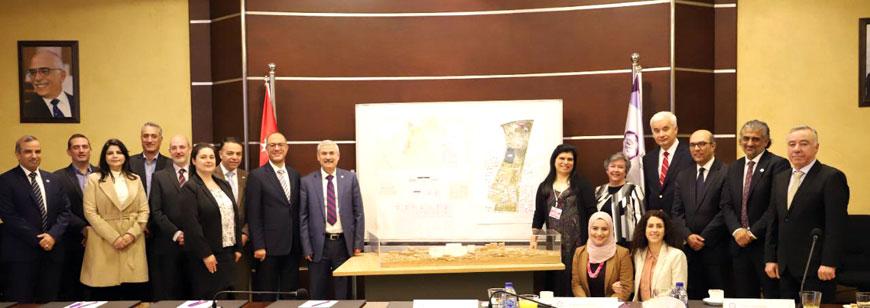You are here
‘13,000 Jordanians studying medicine abroad’
By Suzanna Goussous - Aug 04,2016 - Last updated at Aug 04,2016
AMMAN — Thousands of Jordanians are studying medicine and engineering abroad, raising concerns about the prospects for their employment when they return to the Kingdom, officials said this week.
According to figures from the Jordan Medical Association (JMA) and the Jordan Engineers Association (JEA), some 13,000 Jordanians are enrolled in medical schools abroad, while around 12,000 are studying engineering at foreign universities.
This year, the ministry has accredited some 22,199 certificates for qualifications obtained abroad, with medicine topping the list as the most popular major, followed by civil and electrical engineering, said Mohammad Zboun, director of the ministry's directorate of certificate accreditation.
“The highest number of certificates accredited in Jordan in 2016 was from Egypt, with nearly 5,051 diplomas, while some 4,769 were from the US, around 4,729 were received in Ukraine and 3,931 were from the UK," he told The Jordan Times earlier this week.
Some 1,821 certificates were obtained from Sudan, 1,290 from Malaysia and 608 from Cyprus, he added.
Between 2005 and 2015, some 7,977 students accredited their medical degrees obtained abroad at the directorate; 7,956 accredited certificates in engineering and 2,102 accredited dentistry degrees, according to Zboun.
Jordanians are more likely to pursue medical degrees abroad than engineering, he noted, as the admission requirements to study engineering at Jordanian universities are manageable.
Around 9,218 students are currently enrolled to study medicine at Jordanian universities, while some 52,743 are majoring in engineering, Zboun said, adding that 2,907 students are enrolled in Jordanian dentistry degrees.
The number of certificates accredited by the ministry has raised concerns among some doctors and engineers working in Jordan. Nidal Badran, secretary general of the JMA, noted that there were limited job opportunities for recent graduates in Jordan.
“There is a shared responsibility between the concerned authorities and medical centres to provide for students who aspire to become physicians in Jordan, whether they receive their degrees abroad or in the Kingdom,” he told The Jordan Times.
Badran added: “We can move forward when the Health Ministry, the association and medical centres or hospitals cooperate to hire medical students from different fields.”
He suggested that authorities could cooperate to develop fields such as medical tourism, which is in high demand.
“We have to offer jobs to graduates who hold a degree from medical schools, whether in the private or the public sectors,” Badran said, adding that there are limited opportunities for general practitioners.
“The higher the degree received in medicine, the better. When students decide to become medical specialists, they guarantee that they will find job opportunities in Jordan or Gulf countries.”
The lowest high school average for admission to medical schools abroad is 80 per cent, he said.
“It is the right of students to choose their majors, as long as they commit to the criteria and obtain the required grades.”
Badran said the medical programmes being taught abroad should be monitored, suggesting that the Kingdom’s embassies could evaluate the courses offered to Jordanian students.
Meanwhile, JEA President Majid Tabba said that per capita, the Kingdom has the highest demand for engineering schools in the world.
“The number of students choosing engineering is on the rise,” Tabba said, noting that the high number of engineering graduates in Jordan could be a burden.
He told The Jordan Times that around 40 per cent of Jordanians with engineering degrees work abroad, especially in Gulf countries.
Electrical, civil and infrastructural engineering are still in demand on the Jordanian job market, Tabba said, while there are high levels of unemployment among computer, telecom, chemical and mining engineers.
“Entering engineering as a field has become a social norm. It is something in the mindset of Jordanians that we cannot change, but we can help develop job opportunities and hold informative seminars on the fields needed in Jordan,” he added.
Related Articles
AMMAN — When Jordanian Saif Ayyash decided to study engineering abroad, he thought he would have a chance to contribute to the local labour
The Ministry of Higher Education is mulling increasing the minimum General Secondary Certificate Examination (Tawjihi) score required for admission to medical schools abroad to 85, an official said Sunday.
AMMAN — Princess Sumaya University for Technology has obtained accreditation from the Association to Advance Collegiate Schools of Business

















